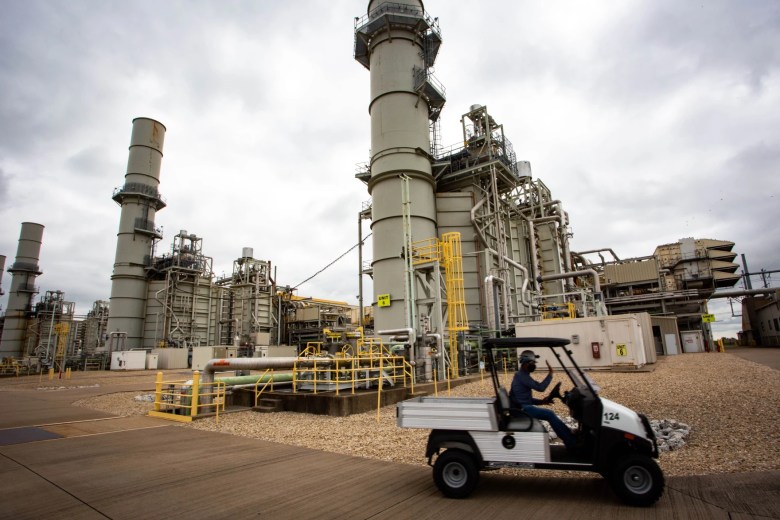The readiness of Texas’ natural gas production and delivery systems to continue operations during severe winter storms is not being sufficiently confirmed by state oil and gas inspectors. A recent study from the State Auditor’s Office also claims that regulators have not held natural gas operators to winter weatherization standards.
Since the blackouts during Winter Storm Uri in 2021, the state has mandated that natural gas production and distribution businesses prepare for severe winter weather.
Most people recall those blackouts as an electric grid breakdown in Texas. But freeze-related malfunctions along Texas’ extensive natural gas supply chain also contributed to the days-long power outage. These issues contributed to the electricity shortage by preventing gas from getting to power units.
According to a later analysis from the Federal Energy Regulatory Commission, disruptions in the fuel supply—nearly all of which were natural gas—were the cause of almost 30% of power plant outages during the storm.
Senate Bill 3 was passed by the state legislature following the blackouts. The statute mandates, among other things, that the Railroad Commission determine which components of the gas supply chain are essential to the Texas power grid’s functioning and make sure they remain operational under extreme winter conditions.
In order to assess natural gas wells, pipelines, and storage facilities’ readiness for winter, the Railroad Commission, the state’s oil and gas regulatory body, started conducting on-site inspections in December 2022.
The program’s success in guaranteeing a sufficient winter gas supply was lauded by the agency. However, the most recent audit discovered serious flaws.
The auditor’s report states that existing regulations provide gas companies the freedom to determine what level of winter readiness is appropriate for their individual operations. It seems that every business that took any precautions against winter weather has passed inspection.
During the winter months of 2024 and 2025, the Railroad Commission carried out 8,732 inspections, and just two violations were given by regulators. According to the audit, the reason for both of those was that the facilities under inspection lacked weatherization techniques.
According to the Commission, auditors discovered that facility operators are the ones who decide which weatherization measures are required and whether they are adequate for that particular facility. The actual weatherization techniques used by the facilities were not contrasted with the Commission’s recommended procedures.
The Commission did not provide recommendations for improvement after facilities passed inspection.
According to auditors, the commission failed to find and notify facilities of any weatherization flaws in the 8,730 other inspections that were successful.
To be prepared for severe storms, employees at critical gas plants must complete weather readiness training. The audit discovered that inspectors are expected to take the gas companies’ word for it and are not obligated to confirm that trainings actually occurred.
State auditors came to the conclusion that failing to verify training records raises the possibility that certain employees won’t be ready for severe winter weather events.
According to the auditors, some of these issues need to be resolved quickly because doing so will help to resolve the issues raised and lower risk.
The Railroad Commission’s detractors claimed that the audit’s conclusions were consistent with a broader trend of inadequate regulation of the oil and gas sector.
Regarding the existing weatherization system, Virginia Palacios, executive director of the monitoring group Commission Shift, stated that “you could have (gas) operators doing the cheapest thing possible on site (to prepare for winter), and the cheapest thing possible might not be the most effective thing.”
Railroad Commission, however, defended its record.
Wei Wang, the executive director of the Railroad Commission, responded to the audit in writing, stating that the Commission disagreed with many of its conclusions.
First, considering the range of sites inspectors must examine, the Commission argues that it is not feasible to hold gas operators to industry best practices for weatherization.
According to the commission, commission inspectors use their in-depth training and industry experience to make a competent decision during a site inspection.
The suggestion that the few infractions found by inspectors point to a malfunctioning regulatory framework also infuriated the commission.
The Commission management indicated that the low number of infractions issued was not a result of a lack of control, but rather of the successful implementation of (Senate Bill) 3.
Regarding some of the other audit recommendations, the Commission stated that it would not attempt to confirm whether employees had received safety training unless it suspected company representatives of lying about it, but it did agree that it should start providing inspection records to companies as a matter of practice.
State auditors defended their conclusions in a follow-up to the Railroad Commission’s answer.
As part of the Austin Monitor’s reporting collaboration with KUT, this story was created.
Community donations enable the work of the Austin Monitors. Even though we occasionally publish on funders, we take pains to ensure transparency by keeping editorial and business activities apart. Our code of ethics is described here, and a full list of donors may be seen here.
You’re a community leader
And we are thrilled that you trust us with important, in-depth news. You are aware that local and committed watchdog reporting is essential to a healthy community. We will always be here to support you. Will you now support our nonprofit news organization and take the bold next step?









